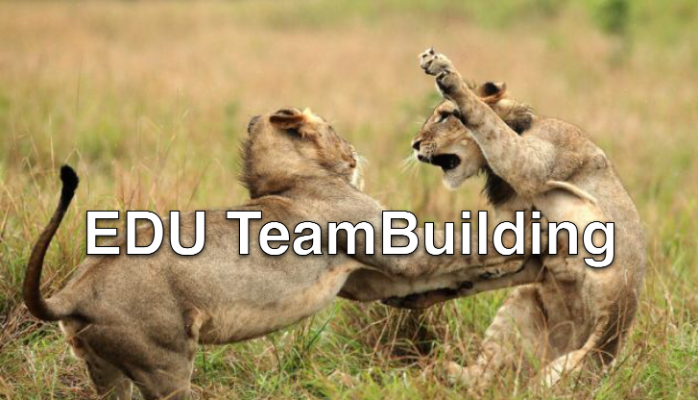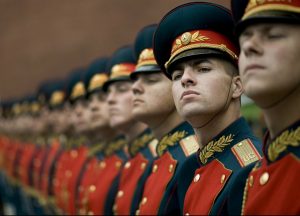Educational Teambuilding
 Most businesses want teams. Teams are great because they do what they do much better than groups. That is the idea. I agree with this. In fact, I firmly believe in the forming-storming-norming-performing principle because I’ve been there myself… several times. The most fragile and risky part of this are the storming and norming phases. In particular the storming phase can take forever. This phase implies conflict and people typically shy away from this, understandable but unfortunate. Is there a way to short-circuit this in a safe and effective way? I think there is.
Most businesses want teams. Teams are great because they do what they do much better than groups. That is the idea. I agree with this. In fact, I firmly believe in the forming-storming-norming-performing principle because I’ve been there myself… several times. The most fragile and risky part of this are the storming and norming phases. In particular the storming phase can take forever. This phase implies conflict and people typically shy away from this, understandable but unfortunate. Is there a way to short-circuit this in a safe and effective way? I think there is.
If teams are important than we need to build them. Often this happens as the group is formed, etc. and as they go along. Sometimes not. For those instances there are many, many teambuilding options available. I think we have all been there. We all have built with spaghetti, crawled through woods, made fire and carried water to the sea. We all were placed in a situation that exemplified how we need to trust and depend on each other. And it was always fun, but is fun enough?
“a game should be fun and pleasantly uncomfortable”
Teambuilding should be fun, or at least have fun-components. But that doesn’t mean it should not be something else as well. What basically happens during the storming and norming phases is that a team is educating itself. People get to learn really what the team is supposed to be doing and learn to know each other and how to get the job done together. In a way it is like a search into the poorly known, or even unknown. How do the others think about <fill in anything>? You often need to make an assumption or a guess and you can be wrong, dead wrong. Misunderstandings come forwards and that results in friction.
So we are looking for fun and education – or call it training, raising awareness, or whatever – and these go perfectly hand-in-hand. In fact life on earth depends on it. We call it play. Take lion pups for example. They play not just for fun, but also to learn how to work as a team for the moment when as adults they go out hunting together. The interesting thing with us humans is that we have separated fun and learning in our educational system. At school you learn in classrooms which typically are not experienced as fun places to be by our children. Fun is explicitly allowed at school during the breaks, but these are not part of the formal learning schedule… in a way this makes me think hmmmmmm…
When we grow up we go to work. Learning is still there but typically organized in separate once every while training courses… that often look shockingly similar to school. But here is the bit that surprises me most. There is always next to no time for training sessions. Going outdoors for a whole day of carrying water to the sea is agreeable, but training sessions should not be more than 3 hours, and this may already be pushing it. Perhaps the grim prospect of again sitting in school banks makes us…?
But what if training sessions were fun at the level of carrying water to the sea as a team. The answer should not be a surprise to you. For kids and adults alike we humans have developed already a very long time ago the best fun-device ever: games. How many of you do not dream of the day when you play a game at the kitchen table with your grandchildren? And at the same time tell them about your past, teaching them.
Using games for training purposes is not a new idea. What I would like to put in front of you is the following question: what makes a good training game and how much time should it take?
On the first part my answer is that a game should be fun (obviously) and pleasantly uncomfortable (AKA challenging), besides being relevant to what the training is all about. This means that you are placed in a situation that is not you. In other words you are something or somebody that perhaps you once have dreamt of being, that you know about or perhaps have heard of, but for sure is not you.
You not being you, that really is the key. This means that a good training game must not be a direct copy of your day-to-day activities. If it is then it would be like doing an exam with all the answers next to you. You may feel good, but learn nothing. You not being you also means you are outside your comfort zone. In a team game this is the same for everybody, which sets the perfect scene for getting to know everybody at a different level and learn to depend on each other. And all this in a safe environment because every misunderstanding has only consequences in the game and not the real world.
That leaves the amount of time question. I think a good and, perhaps better put, effective training game takes the better part of a day. The reason for this is that people must be immersed in the game and its scenario, find their way and need time for the learning’s to sink in. These are basically the same reasons why classic teambuilding sessions are hard to do in 1 hour. The real question to ask is: if teams are so important and it is important that they perform well and know how to do what they must do, why is 1 day too much to spare? Consider the costs of a team that not only doesn’t know how to be a team, but also doesn’t know how to do what they must do. A relevant team-based trainings game can get you a team that knows how to be a team and knows how to do what they must do.
In other words: educational team building.
Jan-Willem Boots is co-founder of Changing Games and developed the Full Strategy Experience Game, a team-based game on learning strategy.



